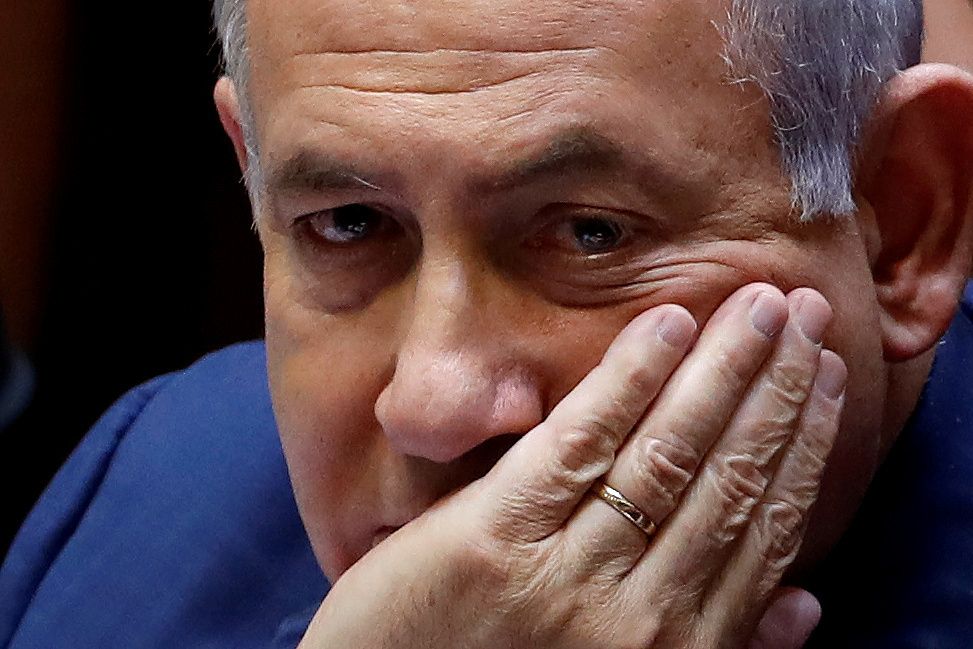SHORT CUTS: Bibi and Boris in Trouble, Africa's Big Deal, Kiwihack!, and More…
Today, we step away from the usual roundup of what we're watching and ignoring in order to cast a wider net over a busy week in international politics. Here are short cuts on several of the most important stories.
Bibi's in big trouble
Even after winning elections in April, Israeli Prime Minister Benjamin Netanyahu, also known as Bibi, was unable to form a government before Wednesday's deadline, a first in Israeli history. Now new elections must be held on September 17.
Opposition leader, and former Defense Minister, Benny Gantz appears set to again lead his Blue and White coalition against Netanyahu. The stakes are high for Bibi – he is facing corruption charges, and wants to be in a position to pass laws that grant him immunity from prosecution while he is in office.
One twist: this week, Gantz publicly floated the idea of a unity government between Blue and White and Netanyahu's Likud party—as long as Netanyahu is not prime minister. Could that happen? Likud may well come out in front in September, but Netanyahu's unprecedented failure to form a government means that his fellow Likudniks might start to see him as expendable after the vote.
New Zealand Hack Attack Reveals a Dangerous Global Trend
In New Zealand this week, the opposition National Party leaked details of the government's budget plan two days before it was to be publicly unveiled, and the country's Treasury claims the info came from hacking government computers. The National Party denies it hacked anything, and the Treasury won't say who it believes was behind the attack.
The resulting controversy echoes questions over Donald Trump's presidential campaign, in which information about his opponent Hillary Clinton was stolen by the Russian government, but it poses a question that will surely be asked in countries around the world in coming years: As hacking makes it easier than ever to access sensitive data, what should a political party do when it's offered illegally obtained but politically valuable information by an outside actor? In some cases, an actor based in another country?
The Mueller Effect
President Trump responded to the public statement from Robert Mueller earlier this week, in which the Special Counsel made clear that his report does not exonerate the president on obstruction of his investigation but that he chooses not to add more than is already in his report. The president's response? Mueller, he said, was just "highly conflicted" by anger at Trump for not naming him FBI director and a past disagreement over an unspecified business deal.
Did Mueller's statement light the fuse of impeachment or leave all sides disappointed? Click here for our take(s) on one of the biggest stories of the week.
Boris Goes to Court
Boris Johnson may be the odds-on favorite to succeed Theresa May as Conservative Party leader and prime minister of the UK, but a judge ruled this week that he must appear in court to face charges that he lied and misled the public during the Brexit referendum campaign in 2016. Under British law, a public official can be charged with misconduct if he or she knowingly misleads the public on a matter of important public interest. At issue: Johnson's false claim before the Brexit vote that the UK's membership in the EU was costing British taxpayers £350m ($440 million) a week.
Britain's prosecuting authority can shut this case down if it chooses, but Johnson can't be pleased to see so much scrutiny of his credibility on the eve of his best-ever chance to become prime minister.
Africa's Kind of (a) Big Deal
The African Continental Free Trade Agreement, which would create a single market of more than 1.2 billion people if all African countries eventually sign up, went into effect this week. At the moment, much of Africa's trade is with countries outside the continent but the deal could boost continental commerce more than 50%, says the UN, spurring economic growth and creating jobs for Africa's soaring youth population.
Still, the deal, which would allow "free movement of business persons and investment" among member states, remains a work very much in progress. First, the countries that have already signed up have until July to decide how the agreement will actually work. Second, just 24 of Africa's 54 countries ratified the deal so far.
Greece turns the political page
An underreported story from European Parliament elections: Syriza, Greece's governing party, performed badly enough in the bloc-wide vote that Prime Minister Alexis Tsipras has announced early elections, probably in July. Economic conditions are unlikely to improve much before the original election date in October.
The main opposition New Democracy party has promised for years that its investor-friendly approach to economic policy will help Greece recover from its deep economic crisis more quickly than Syriza can. We're likely to find out if they're right: the party stands an excellent chance of winning a majority in parliament. On the other hand, a Syriza freed of responsibility from governing might become a serious obstacle to better Greek relations with the country's European creditors.
Venezuela's Road to Nowhere
Not surprisingly, talks held in Oslo between representatives of Venezuela's government and opposition have ended without much progress. Opposition leader Juan Guaidó, recognized as Venezuela's legitimate president by dozens of other governments, has called on his supporters to return to the streets to protest. The stalemate continues because the leadership of Venezuela's military, and most other parts of the government, remains loyal to President Nicolás Maduro.
For now, Venezuela's economy continues to spiral, and 3.7 million Venezuelans have fled their country, according to the UN. No matter where Maduro's men meet Guaido's, there is little reason to believe the two sides can find common ground until the military becomes convinced that it's more dangerous to keep Maduro than to put him on a plane.
